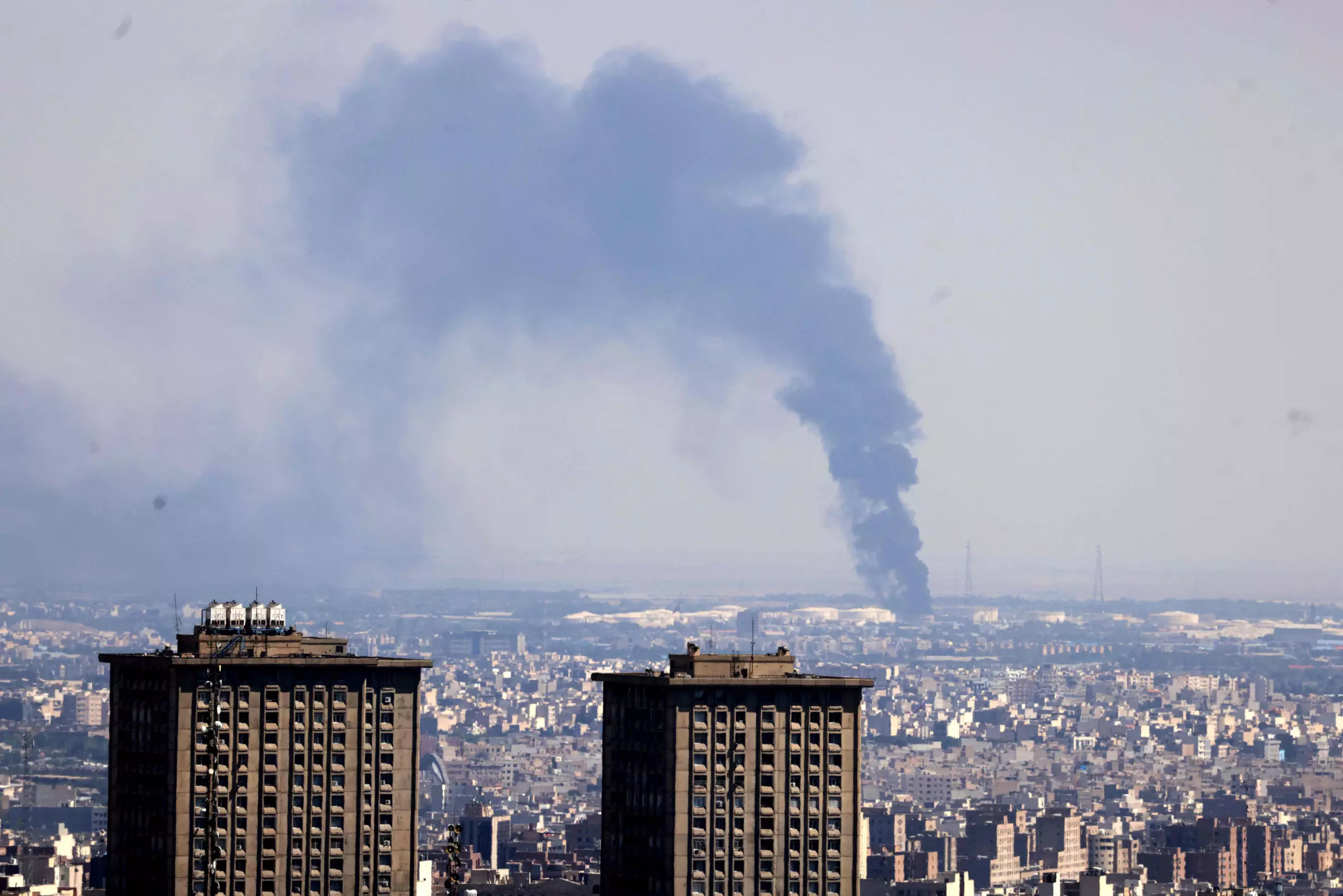Syed Ata Hasnain | The Israel-Iran Standoff: A War Long in the Making
If the war between Iran and Israel continues to intensify -- as now seems likely -- there are serious outcomes in the making

On initiation, it seemed like just another of those rounds with missiles being fired at each other. But on its fifth day of continuing exchanges, the latest Israel-Iran spat appears something far more serious. Potentially, it could mark a new realignment in the shifting sands of West Asian geopolitics. Wars there have often redefined not just borders, but narratives. This one threatens to reorder the region’s priorities and possibly relegate the Palestinian cause to a diminished place in the Arab and Islamic political imagination. The Israel-Iran animosity, translated into war, could well shape the region for the coming decade, given the Iran nuclear issue and Tehran’s ambitions of being a dominant political force across the Middle East.
For long, Palestine served as the fulcrum around which Arab solidarity was declared, anti-Western rhetoric launched, and domestic legitimacy sought. In much of the Islamic world, invoking the suffering of the Palestinians was a political ritual. But the war in Gaza -- and the lack of any coherent steps by the Arabs to cease the assault on its people -- and now the direct escalation between Iran and Israel, have begun to push that centrality to the periphery. If this conflict endures and yields destiny-shaping outcomes, it may not remain merely a momentary distraction. The rise of Iran as the pivot of both confrontation and resistance in the Middle East, supplanting the Palestinian issue with a broader sectarian, ideological, and geopolitical rivalry, may already be under way.
Even before the current war, Iran had effectively positioned itself as the leader of a transnational “Axis of Resistance”, that stretched from Hezbollah in Lebanon to the Houthis in Yemen, from Hamas in Gaza to the militias in Iraq and Syria. It was mostly proxy warfare, with little direct involvement -- often veering off into sporadic kinetics. With these proxies now severely degraded through targeted killings and military pressure, Israel probably perceived this as the moment to seize and escalate what was, until now, a war long in the making.
However, Tehran too will now make every effort to sustain an asymmetric war through recalibration, likely involving a revival of its regional surrogates.
In contrast, the Palestinian political movement today is sidelined. Hamas and Fatah remain divided, with neither commanding broad international legitimacy nor internal unity. The Arab League’s rhetorical support has grown hollow, and countries such as the United Arab Emirates, Bahrain, and even Saudi Arabia continue to explore deeper ties with Israel --regardless of what happens in Gaza. The Abraham Accords had signalled a tectonic shift.
This shift has clear sectarian undertones. Sunni-majority Arab states are increasingly anxious about Iran’s influence -- seeing it not just as a political threat, but as an ideological and civilisational competitor. The Sunni-Shia divide, long manipulated and sometimes downplayed, is resurfacing. Tehran’s projection of power is no longer camouflaged in pan-Islamic slogans alone. It is Shia-led, ideologically anchored, and revolutionary in its vocabulary. That makes Gulf monarchies uncomfortable -- some doubling down on US support, others hedging through China and Russia.
If the war between Iran and Israel continues to intensify -- as now seems likely -- there are serious outcomes in the making. Israel, emboldened by its air superiority, by its technological efficiency and with its disregard for international opinion, may target Iran’s energy infrastructure, with devastating consequences. The Strait of Hormuz and adjacent facilities are lifelines not just for Iran’s economy but for global energy supply. An Israeli strike on oil terminals, refineries, or tankers could effectively paralyse the movement of energy through the Persian Gulf.
The ripple effects of such an act would be global. Among the worst affected will be the energy-importing Asian economies --particularly China, Japan and India. With 80 per cent of India's crude oil transiting this route, any prolonged disruption would severely impact fuel prices, inflation, and economic stability. Already, oil prices have spiked by $10 per barrel. A regional war now risks becoming a global economic shock.
Meanwhile, the human cost of the conflict is rising. Given Israel’s recent precedent of inflicting civilian casualties without remorse in Gaza and in southern Lebanon, any deeper confrontation with Iran is unlikely to spare civilian areas or critical infrastructure. Iran, too, is retaliating through missile strikes on urban areas, cyber disruptions and maritime harassment. In wars of this nature, one side often needs to blink first for a ceasefire to emerge.
There is a historical precedent. In earlier confrontations, Iran has resorted to intense rhetoric but has often stopped short of maximal retaliation, preserving room for a tactical drawdown. This time, however, Tehran’s response has been stronger --unlike in earlier provocations, when it calculated restraint. For Israel, attainment of destruction of underground refinement facilities is unlikely. A partial destruction of missile batteries may be sufficient incentive for a draw-down.
India’s core interests -- energy security, the safety of its diaspora, maritime stability, and counter-terrorism -- are best served by peace and equilibrium in the Gulf. Its infrastructure investment in Chabahar, and potential access to Central Asia through the International North-South Transport Corridor, mean it cannot afford to alienate Iran. At the same time, the India-Israel security relationship -- spanning defence technology, intelligence sharing and innovation -- has reached unprecedented levels. These ties are too valuable to dilute, especially when regional stability is at risk.
India may thus need to reassert its strategic autonomy -- not as non-alignment, but as multi-alignment -- engaging all, antagonising none. There may even be scope for India, given its rising profile, to play a quiet mediatory role or support back-channel diplomacy -- especially since both Iran and Israel have historically engaged New Delhi with respect. India’s credibility and ability to talk to both sides, without posturing, is an asset worth activating discreetly.
The ascendancy of Iran as an issue and the fracturing of Palestinian centrality marks a turning of the tide in West Asia. This is a conflict unlikely to end in the near term. Even if it pauses, it may resume, in a region long shaped by unfinished wars and simmering animosities. Iran’s diplomatic linkages, its asymmetric strengths, and sheer geographical scale mean that its confrontation with Israel is not a passing phase but part of a long-term regional recalibration.
In this fraught landscape, India’s quiet confidence and strategic flexibility offer it rare leverage. As the war rages across the Persian arc, it is countries like India -- deeply invested, and yet wisely restrained -- that could play a major role in shaping the region’s eventual off-ramp from disaster.
